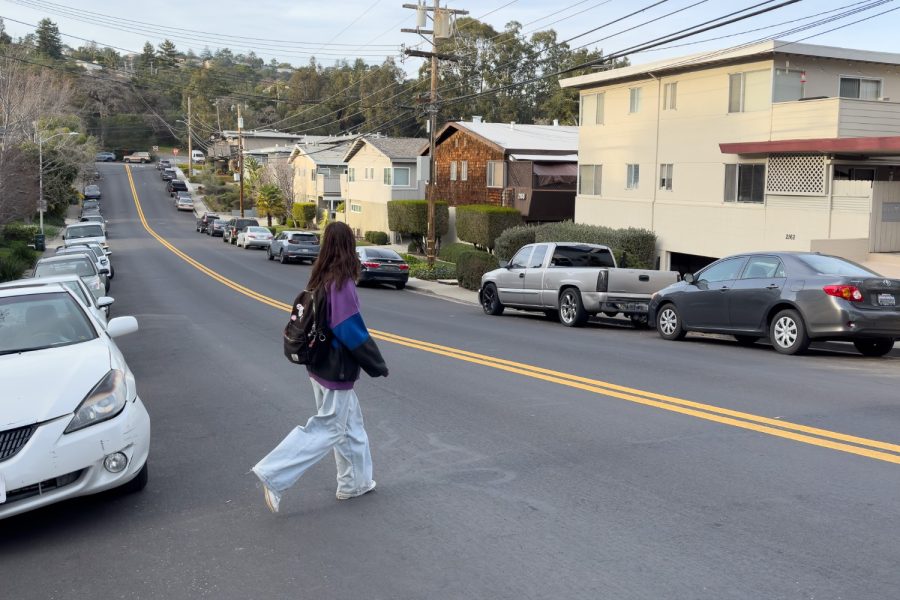A student rushes across the street, late for school, as the crosswalk signal remains unchanged.
Not wanting to arrive later, the student ensures the road is clear and proceeds.
Until the start of 2023, the student could have been fined hundreds of dollars for jaywalking. However, the Freedom to Walk Act (Assembly Bill 2147) is now part of the law, saving the student from the burden of a fine.
The bill, authored by assemblymembers Phil Ting of San Francisco and Laura Friedman of Glendale, was signed by Governor Gavin Newsom on Sept. 30.
It states that an officer can only cite a pedestrian for jaywalking when a careful person could realize an immediate danger of collision. It decriminalizes safe street crossings.
Some people still prefer to cross at crosswalks for safety reasons.
Carlmont sophomore Sophia Chan always crosses at crosswalks when there’s a green light due to a bad experience when she was late for skating practice.
“We thought it would be fine to cross the road when it was a green light for the cars since half of the lane was stopped, but then the left side was still going. Some guy almost ran us over,” Chan said.
For drivers, pedestrians crossing streets without signals require sudden stops.
“When I see a jaywalker when I’m driving, I get nervous,” said Amelie Desai, a junior at Leigh High School.
While the bill raises safety concerns, its primary goal is to address unfair fines and prevent unnecessary police stops.
The base fine for jaywalking is $196, and fines are given disproportionately to people of color and lower-income individuals.
The bill also helps address the issue of unnecessary jaywalking stops escalating into violence or death, which happened in California to Kurt Reinhold, Chinedu Okobi, and Nandi Cain Jr.
However, the bill raises concerns over officer judgment in enforcement and pedestrian safety.
Carlmont sophomore Uma Mele used to oppose jaywalking because it was illegal and unsafe, but she is now more neutral on the topic.
“If you want to do that, I feel like there’s no problem with it. Just out of my safety, I don’t jaywalk,” Mele said.
With the Freedom to Walk Act, California follows Virginia, Nevada, and Kansas City, which decriminalized jaywalking in 2020 and 2021.
Although data from the Virginia DMV and Nevada’s Office of Traffic Safety shows increases in pedestrian deaths since decriminalization, there were also increases in pedestrian deaths nationally.
Today, people jaywalk for various reasons. Though Desai gets nervous with jaywalkers as a driver, she still crosses outside intersections on her runs because of impatience.
Jaywalking laws emerged in the 1930s to shift the blame for car accidents from drivers to pedestrians, and they still exist around the country.
In the future, groups like America Walks hope to continue decriminalizing jaywalking laws.
While Chan prefers crossing streets at designated spots and times, she doesn’t mind new laws emerging.
“It doesn’t really faze me. People will jaywalk anyway,” Chan said.












